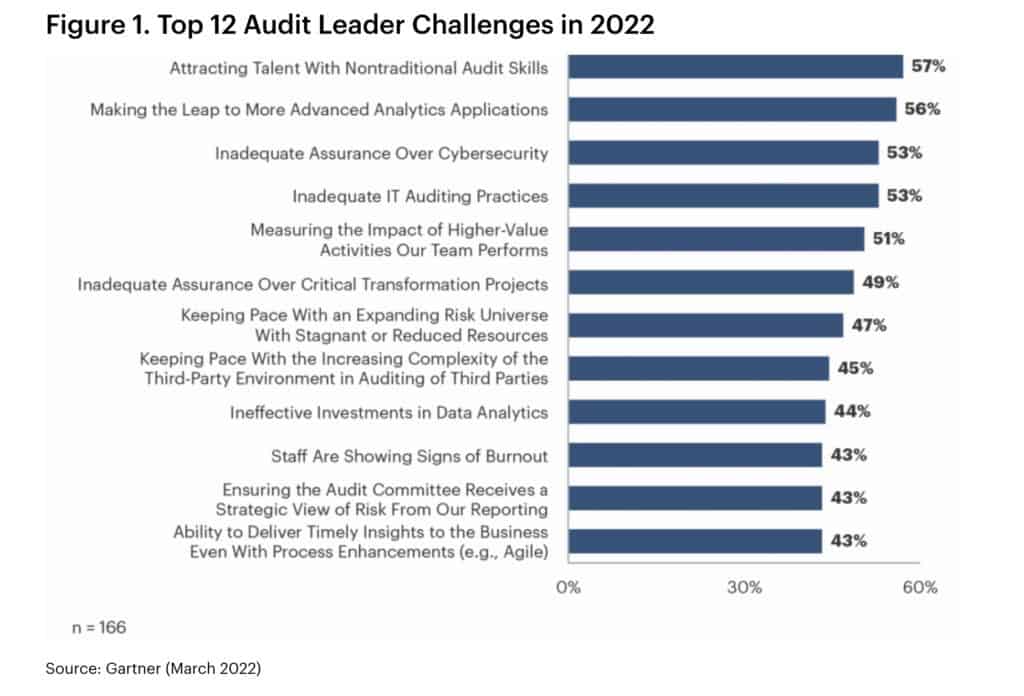The top challenge for internal audit leaders this year is how they can attract talent with nontraditional skills, said Gartner recently.
The advisory firm surveyed 166 internal audit leaders in July 2021, finding that making the leap to more advanced analytics applications, improving IT auditing practices, and providing sufficient assurance over cybersecurity were also serious concerns for audit leaders in 2022.
Audit leaders continue to experience skills gaps in their departments and are actively seeking to fill those gaps with specialised talent who have data science, IT and cyber skills, said Leslee McKnight, director, research for the Gartner Audit and Risk practice.
These already-scarce skills are competitively sought after in other parts of the business, so finding them is a particularly acute challenge this year, she added.
Survey highlights
57% of chief audit executives said that attracting talent with nontraditional skills was an important or extremely important issue for them in 2022.
56% flagged the move to advanced analytics as a top challenge, and 53% were concerned about inadequate cybersecurity and IT auditing practices.
Other top challenges included providing assurance over critical transformation projects, and the increased complexity of the third-party risk environment (see Figure 1).

“A hot jobs market, and increasing demands on auditors, mean that many audit leaders are struggling to retain the staff they have,” said McKnight, “More than a third of audit leaders report that high-performing talent is leaving their organisation.”
The difficulty in attracting talent to internal audit is a major factor driving many of the other top challenging facing audit leaders, she noted.
“Audit leaders also expressed lower confidence in their team’s ability to audit evolving areas, such as cybersecurity, ESG, talent risks in the broader organization, and increase in the department’s use of data analytics and technology,” said McKnight. “These areas often require the specialised skills audit teams are trying to attract.”
The results suggest that technology is presenting a dual challenge for audit – both in terms of audit department innovation and adequate risk coverage, Gartner pointed out.
Almost half of audit leaders feel their department isn’t ready to adopt more advanced analytics applications while nearly a quarter feel their function isn’t achieving adequate ROI from robotic process automation, the firm said.
More than a third have low confidence in their ability to provide adequate assurance over cybersecurity and in their IT auditing practices, Gartner noted.
“This apprehension from audit around technology comes at a time when 60% of audit departments are planning to increase audit technology spending this year,” said McKnight. “Difficulty attracting the right skills to audit, while needing to bolster technology risk coverage, and pursue departmental digital transformation efforts is creating a perfect storm around these in-demand capabilities.”
Source: futurecfo.net
.png)